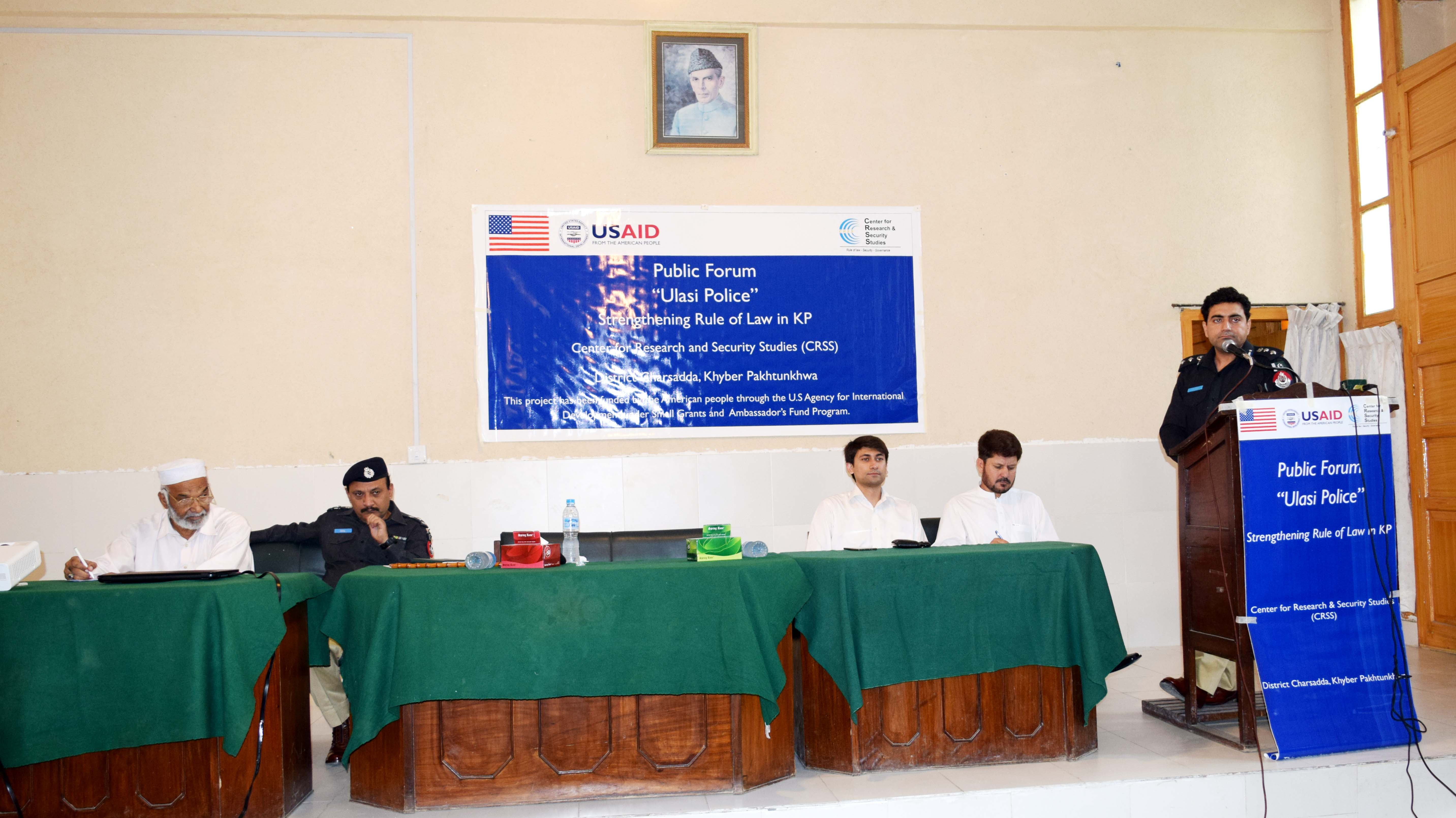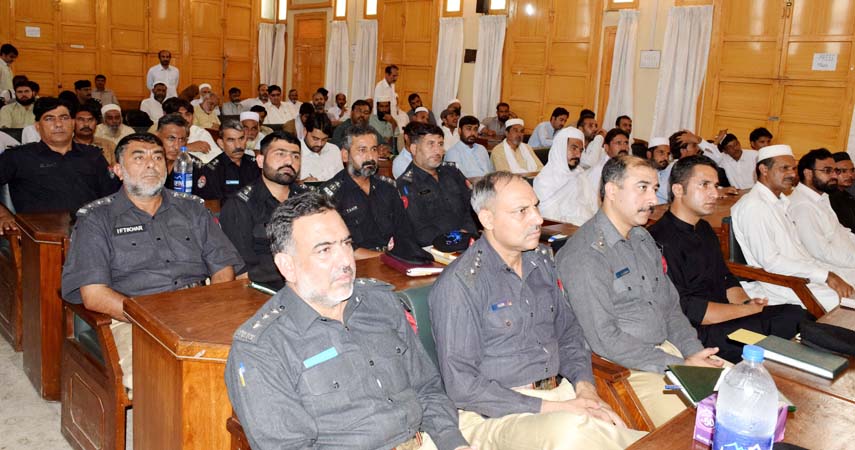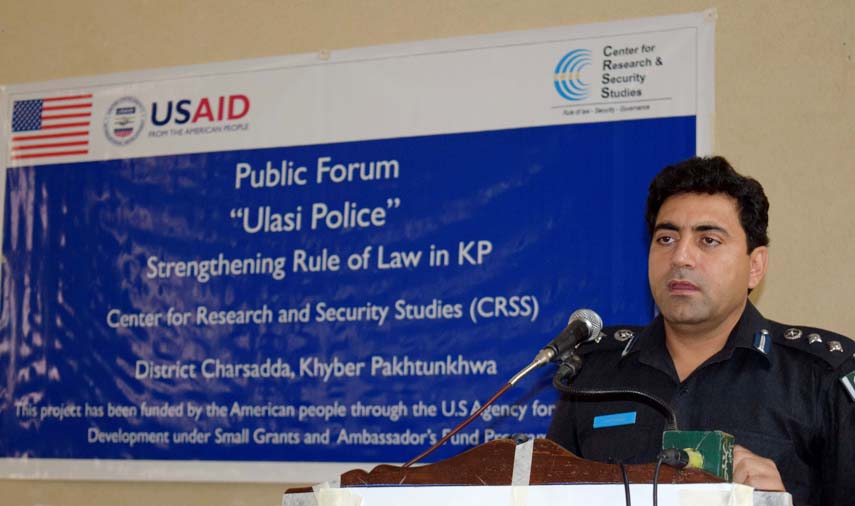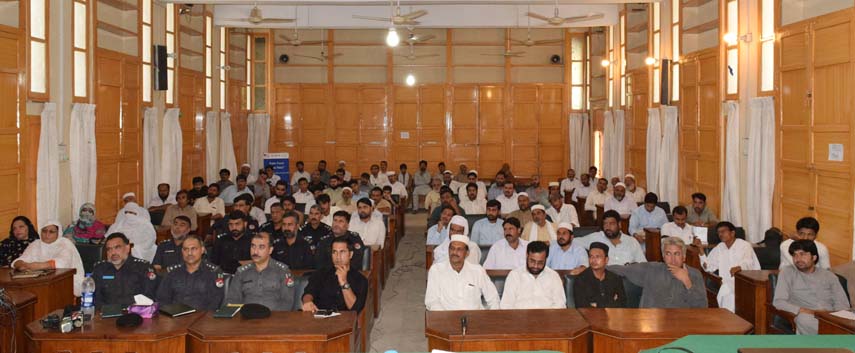Public-Police dialogue should be interactive and two-way in nature to develop linkages between the two. It is extremely important to disseminate and share with the citizens the public service vision of police leadership to help address the trust deficit. The vision of reforms was an operationally autonomous police which besides possessing the powers to control the crimes in the society, is democratically controlled and accountable to the public. The behaviors of police might have changed due to the uphill counter-terrorism challenges in the society, but the reforms will hopefully improve their public relations skills to fill this gap. But KP police is still considered better than other provinces.
These were the remarks made by Mr. Ijaz Ahmad, DIG/ RPO Mardan during a public forum on police reforms at TMA Hall, Charsadda. Mr. Sohail Ahmed, DPO Charsadda and Haji Mukarram Khan, District Council Member Charsadda also spoke on the occasion. The event was participated well by the senior police officers and members of community with diverse backgrounds including lawyers, local government representatives, media, academia and youth representatives. The forum was part of the project “Ulasi Police” an awareness and advocacy campaign undertaken by the Center for Research and Security Studies (CRSS) – as part of USAID Small Grants and Ambassadors’ Fund Program – to strengthen the rule of law in KP province by promoting and disseminating the significant police reforms aimed at incorporating local communities’ policing needs and international human rights standards. The endeavor aims to tackle the trust deficit between the public and police, help KP police become an accountable and community-focused police force.
Mr. Ijaz Ahmad, DIG Mardan said that it was enormously important to develop public-police partnership for rule of law as weak civil society leads to crimes and injustice. Police Policy Board – an inclusive group comprising cadres of police officials from different levels – has played a great role in the KP police reforms and bringing public-police together. “The hiring system of KP police has greatly improved and is ever more transparent; which strictly ensures merit based inductions through NTS exam”, he talked about the professional competence of police while adding that the promotion system has been revised too and linked with the performance.
He said that the KP Police has taken several significant steps aimed at incorporating the policing needs of communities including Police Assistance Lines (PAL), Police Access Service (PAS), Dispute Resolution Council (DRC), Model Police Stations, Specialized Training Schools, Identity Verification System (IVS), Vehicle Verification System (VVS), Criminal Record Verification System (CRVS), Hotspot Policing (Geo Tagging), Online FIR, SOS Call Service, Complaint Against Police, Police Information Network (PIN), New Units Raised (Including Special Combat Unit (SCU), Rapid Response Force (RRF), Elite Women Commandos, Traffic Wardens Service, Public Liaison Council (PLC) as part of community policing initiatives.
Police Access Service (PAS) has been quite efficacious so far in providing speedy justice to the citizens. The service offers different ways of filing a complaint with the police where the incoming messages are received through several mediums of communication. Police Assistance Line (PAL) is another dedicated facility with several centralized services for the public – with dedicated counters for women – that they seek most often.
“At the core of capacity building initiatives are six specialized training schools including Police School of Investigation, Peshawar, Police School of Intelligence, Abbottabad, Police School of Explosive Handling, Nowshehra, Police School of Disorder and Riot Management, Mardan, Police School of Information Technology, Peshawar, Police School of Tactics, Peshawar.”
“The society free of crime and injustice is a collective responsibility of police and public and this goal requires inclusive partnership and efforts”, he concluded his presentation.
Haji Mukarram Khan, District Council Member Charsadda said that the public should appreciate and respect the police for their unprecedented sacrifices in war on terror (WoT), that they made going above and beyond the call of their duties.
The presentations were followed by an open discussion – on some critical questions on Police Reforms – between the guest speakers and participants from the community.
The members of community unanimously endorsed the need for greater advocacy, awareness and propagation of these reforms – on the utilization and functioning of these initiatives – to the public. They conceded that there were improvements at the upper level in police department but a behavioral change was needed at all levels to improve the community-police relations.




